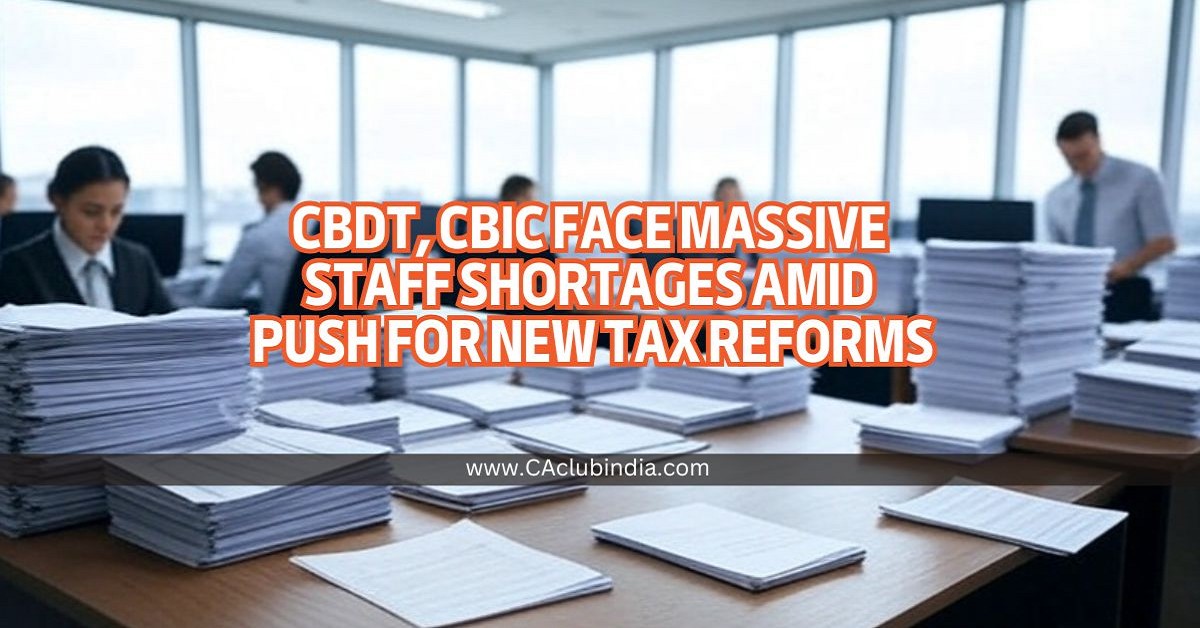As India gears up for the implementation of a new Income Tax law and sweeping reforms in indirect tax administration, its top tax authorities-the Central Board of Direct Taxes (CBDT) and the Central Board of Indirect Taxes and Customs (CBIC) are grappling with a severe shortage of staff.
Data shared in Parliament by Minister of State for Finance Pankaj Chaudhary reveals that the CBDT is functioning with a 34% vacancy rate, while the CBIC is short of 39% of its sanctioned workforce.
- The CBDT, which handles corporate tax, non-corporate tax, and securities transaction tax, has a sanctioned strength of over 77,700, with 26,000+ posts lying vacant.
- The CBIC, which oversees GST, Customs, and Excise duties, has a sanctioned strength of 84,400, but is missing nearly 33,000 personnel.

Chaudhary explained that the vacancies include both promotional posts and positions reserved under compassionate and sports quotas. In several cases, promotions have been delayed due to litigation or pending Departmental Promotion Committees (DPCs).
On the recruitment front, the government is attempting to fast-track hiring. Over 11,800 vacancies in Group B and C cadres have already been notified to the Staff Selection Commission (SSC) for the 2025 recruitment cycle. The CBIC alone has reported vacancies including 1,796 Inspector posts, 183 Executive Assistants, 771 Tax Assistants, and 141 Stenographers (Gr I/II).
Under the Mission Mode Recruitment Plan, the CBIC has recruited more than 30,000 officers since 2022, through both direct recruitment and promotions. The CBDT is also filling vacancies via the UPSC for Group A roles and the SSC for Group B and C roles.
However, officials acknowledge that the issue of high vacancies persists across several government departments. Candidates often shift to other services after cracking fresh exams, leaving newly filled posts vacant again.
Despite these challenges, the finance ministry has assured that recruitment efforts are ongoing and that both boards are actively coordinating with UPSC and SSC to strengthen manpower. The shortage, however, raises concerns about the smooth rollout of the new tax regime and effective enforcement of India's direct and indirect tax laws.







 CAclubindia
CAclubindia
